Why HR is Crucial for Small Businesses
Human Resources (HR) is often associated with large corporations, but it plays a vital role in small businesses as well. Implementing effective HR practices can significantly contribute to the success and growth of any small enterprise. Here’s why HR is essential, even for small businesses:
1. Recruitment and Retention
HR helps attract and retain the right talent. By creating structured hiring processes, small businesses can ensure they bring in employees who align with their values and goals. Additionally, HR practices improve employee satisfaction and retention, reducing turnover and the associated costs.
2. Compliance and Risk Management
Navigating the complex landscape of labor laws and regulations can be daunting for small business owners. HR ensures compliance with employment laws, minimizing legal risks and protecting the business from potential lawsuits.
3. Employee Development
HR plays a crucial role in training and development. Providing employees with growth opportunities not only enhances their skills but also boosts morale and productivity. This leads to a more competent and motivated workforce.
4. Performance Management
Effective HR practices include performance management systems that help track and evaluate employee performance. Regular feedback and performance reviews ensure employees are meeting expectations and contributing to the business’s objectives.
5. Creating a Positive Work Environment
HR fosters a positive workplace culture. By addressing employee concerns, promoting fair treatment, and encouraging open communication, HR helps create a supportive and inclusive work environment. This improves employee engagement and overall business performance.
6. Strategic Planning
HR can provide strategic insights that align with the business’s long-term goals. By understanding workforce trends and planning for future needs, HR helps small businesses adapt and grow sustainably.
Implementing solid HR practices doesn’t require a full-scale HR department. Small businesses can start with basic HR functions and gradually expand as they grow. Prioritizing HR ensures that the business is well-equipped to manage its most valuable asset—its people.
Sources:
Demystifying HR For Small Businesses
HR Basics and Tips for Small Businesses: Best Practices
THIS ARTICLE IS FOR GENERAL INFORMATION PURPOSES ONLY. BUSINESS FINANCIALS, INC. (BFI) IS NOT ISSUING SPECIFIC FINANCIAL OR TAX ADVICE. PLEASE CONSULT WITH A LICENSED FINANCIAL PLANNER, TAX ATTORNEY, OR ACCOUNTANT FOR ASSISTANCE WITH YOUR SPECIFIC SITUATION. IF YOU NEED HELP, WE INVITE YOU TO CONTACT US. WE WILL BE HAPPY TO MAKE RECOMMENDATIONS OR REFER YOU TO A LICENSED PROVIDER WHO MAY BE BEST SUITED FOR YOUR SITUATION.





